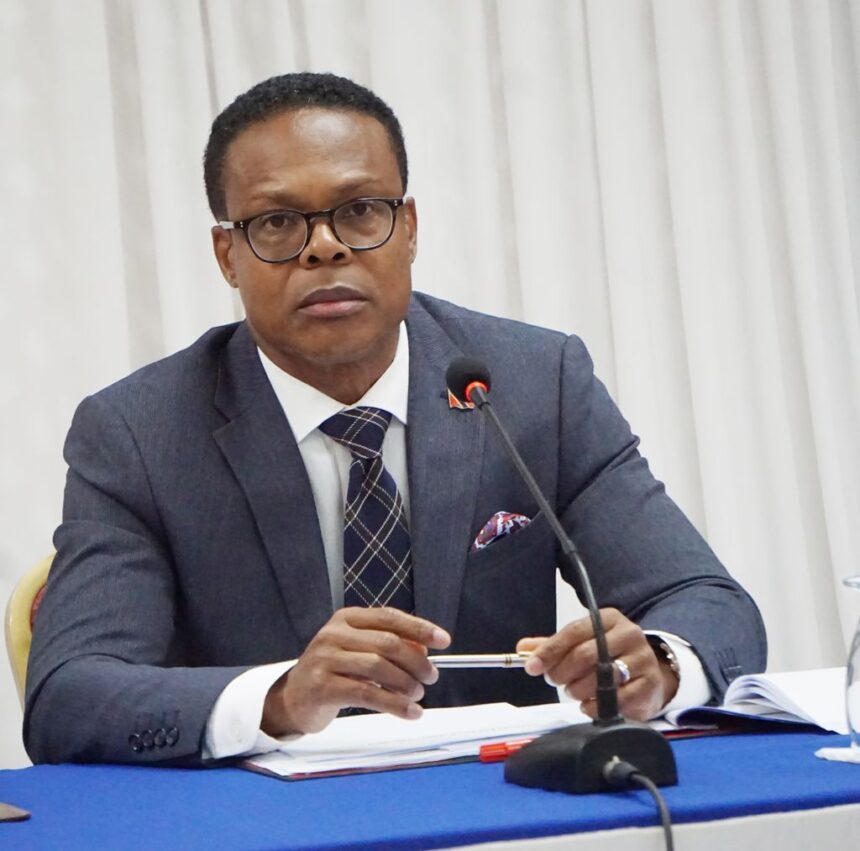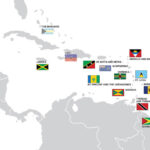Dr. Amery Browne, the Minister of Foreign and Caricom Affairs, has emphasized the importance of Venezuela respecting Guyana’s territorial integrity. He asserts that Caricom remains unified on this issue. Recently, Browne echoed similar sentiments as Guyana raised concerns over what it perceived as Venezuela’s latest attempt to seize Essequibo, a portion of Guyana’s territory.
The International Criminal Court of Justice (ICJ) is currently deliberating on matters concerning regional sovereignty.
Guyana has voiced additional apprehensions following remarks made by Venezuelan President Nicolas Maduro on April 3 regarding the enactment of the “Organic Law for the Defense of Guyana Essequibo,” a bill allowing Venezuela to annex Essequibo.
The Guyana Ministry of Foreign Affairs and International Cooperation, on the day the bill was announced, stated, “This attempt by Venezuela to annex more than two-thirds of Guyana’s sovereign territory and make it part of Venezuela is a blatant violation of fundamental principles of international law enshrined in the UN Charter, the Charter of the Organization of American States (OAS), and customary international law.”
Moreover, the ministry underscored that Venezuela’s recent move contradicts the Joint Declaration of Argyle for Dialogue and Peace, which both nations committed to on December 14, 2023, in St. Vincent and the Grenadines (SVG). This declaration aimed to prevent any further escalation of their conflict over Guyana’s Essequibo area and rejected any threats of violence. Both countries agreed to refer any incidents to Caricom, CELAC (Community of Latin American and Caribbean States), and Brazil instead of escalating disputes.
Additionally, the declaration proposed the formation of a joint committee by Guyana and Venezuela to resolve the Essequibo conflict within three months.
The ministry highlighted Venezuela’s denial of the ICJ’s jurisdiction to settle the conflict and Guyana’s support for it. The ICJ decided on December 1st that Venezuela should not claim Essequibo from Guyana.
According to Guyana’s President Dr. Mohammed Irfaan Ali, Venezuela now has an opportunity to demonstrate respect for international law and peaceful coexistence following the ICJ’s verdict. Ali urged all peace-loving nations to encourage Venezuela to uphold the UN and ICJ principles.
The ministry expressed concern that Venezuela’s actions undermine its commitment to the principles of the Argyle Declaration.
In a statement, the ministry notified the UN, Caricom, Venezuela, and the OAS that Guyana would not consent to any encroachment upon its sovereign territory. Guyana reiterated its commitment to the UN Charter, the rule of law, and peaceful dispute resolution.
The ministry emphasized that the ICJ was adjudicating the dispute between Guyana and Venezuela based on the 1966 Geneva Agreement. The court’s ruling would be final, and both countries must abide by it.
Furthermore, the ministry stated that Maduro’s remarks on April 3 were regrettable and posed a threat to the commitment to good neighborliness and peaceful coexistence made at Argyle.
Government representatives in Guyana stated on April 4, 2024, that they could not provide further comments at this time.
When contacted, Minister Browne reiterated Trinidad and Tobago’s stance, advocating for full respect for Guyana’s territorial integrity, sovereignty, and adherence to international law and dispute resolution processes.
Browne emphasized Caricom’s unified position on the Guyana-Venezuela border issue, asserting the regional family’s solidarity.
The Argyle Declaration, endorsed by Minister Browne last December, emphasized T&T’s dedication to maintaining the Caribbean as a peaceful region.
Prime Minister Dr. Rowley emphasized that while T&T seeks to avoid escalating tensions, it will assert the region’s status as a zone of peace to all partners and neighbors.
As of Thursday, Caricom’s official stance on the recent tensions between Venezuela and Guyana remained undisclosed.
On April 3, Maduro announced via a post on X (formerly Twitter) that the decision of December 3 (2023 referendum) had become law in Venezuela. He vowed to uphold the decision made by Venezuelans and continue defending Venezuela on international platforms.



